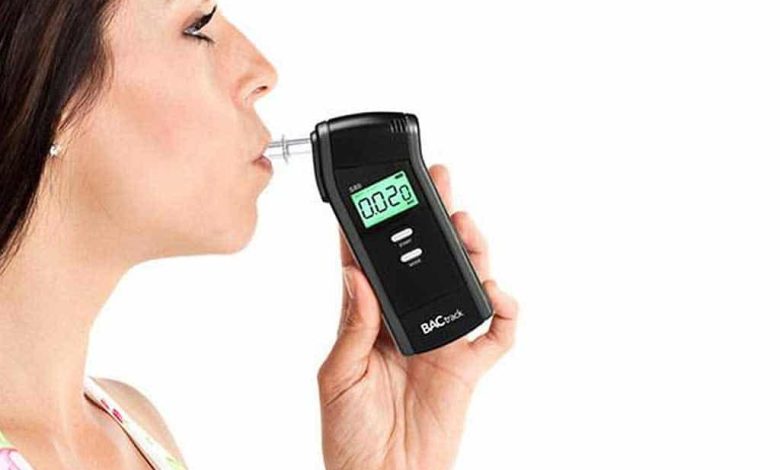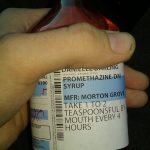Medical Conditions That Cause High Blood Alcohol Content

Blood Alcohol Content, or BAC, refers to the percentage of alcohol in a person’s bloodstream and can be measured within 30-70 minutes after drinking. When a person consumes alcohol, it is absorbed into the bloodstream through the walls of the stomach and small intestine. The alcohol is then broken down in the liver and eventually eliminated from the body through urine and breath.
However, certain medical conditions can cause high blood alcohol content (BAC) levels even when a person has not consumed alcohol or has only consumed a small amount.
The following are predictable effects that manifest at different BAC levels for a person who has not developed tolerance. Some of these change with tolerance; others don’t.
| BAC | Effects Experienced |
| .02-.04% | Coma – Level of surgical amnesia, the onset of coma, possibility of acute alcohol poisoning, death due to respiratory arrest likely in 50% of drinkers |
| .05-.07% | Buzzed – Relaxation, euphoria, lower inhibitions, minor impairment of reasoning and memory, exaggerated emotions (positive and negative) |
| .08-.10% | Lightheaded – Relaxation, a sensation of warmth, “high,” minor impairment in judgment |
| .11-.15% | Legally impaired – Euphoria, fatigue, impairment in balance, speech, vision (particularly peripheral), reaction time, hearing, judgment, and self-control impaired |
| .16-.19% | Very drunk – Strong state of depression, nausea, disorientation, dizziness, increased motor impairment, blurred vision, judgment further impaired |
| .20-.24% | Dazed and confused – Gross disorientation to time and place, increased nausea and vomiting, may need assistance to stand or walk, impervious to pain, blackout likely |
| .25-.30% | Stupor – All mental, physical, and sensory functions are severely impaired, accidents very likely, little comprehension, may pass out suddenly |
| .31% and up | Coma – Level of surgical amnesia, onset of coma, possibility of acute alcohol poisoning, death due to respiratory arrest likely in 50% of drinkers |
In this article, we will discuss the medical conditions that can cause high blood alcohol content and how they can be diagnosed and managed.
Medical Conditions That Cause High Blood Alcohol Content
The following medical conditions can cause high blood alcohol content:
1. Auto-brewery syndrome
Auto-brewery syndrome (ABS) is a rare medical condition in which the body produces ethanol (alcohol) through the fermentation of carbohydrates in the gut. This fermentation process occurs when yeast or bacteria in the gut convert sugars into alcohol. The resulting alcohol is then absorbed into the bloodstream, leading to high blood alcohol content levels.
Symptoms of ABS can include:
• Elevated blood alcohol levels without consuming alcohol
• Intoxication without drinking alcohol
• Dizziness
• Fatigue
• Memory loss
• Poor coordination
• Slurred speech
• Changes in mood or behavior
Diagnosis of ABS involves ruling out other causes of high blood alcohol content, such as alcohol consumption, before conducting tests to measure ethanol levels in the blood and breath. Treatment of ABS involves changes in diet, such as avoiding foods high in carbohydrates and sugar, and the use of antifungal or antibiotic medications to eliminate the yeast or bacteria causing the fermentation process.
2. Diabetes
Diabetes is a chronic medical condition in which the body is unable to produce or properly use insulin, a hormone that regulates blood sugar levels. High blood sugar levels can lead to a condition known as diabetic ketoacidosis (DKA), which can cause the body to produce high levels of acetone, a compound that can be detected on breathalyzer tests and may lead to high blood alcohol content levels.
Symptoms of DKA can include:
• Elevated blood glucose levels
• Frequent urination
• Dehydration
• Nausea and vomiting
• Confusion or difficulty thinking clearly
• Rapid breathing or shortness of breath
• Fruity breath odor
Diagnosis of DKA involves measuring blood glucose and ketone levels and may involve hospitalization for treatment with insulin and fluid replacement therapy.
3. Gastrointestinal disorders
Certain gastrointestinal disorders can cause high blood alcohol content levels by interfering with the normal absorption and metabolism of alcohol in the body. These disorders may include:
• Gastric bypass surgery: This surgery involves reducing the size of the stomach and rerouting the small intestine to limit the amount of food a person can eat. This can interfere with the absorption of alcohol in the stomach and small intestine, leading to high blood alcohol content levels.
• Liver disease: The liver is responsible for breaking down alcohol in the body. Liver disease can impair the liver’s ability to function properly, leading to slower metabolism of alcohol and higher blood alcohol content levels.
• Pancreatic insufficiency: The pancreas is responsible for producing enzymes that aid in the digestion of food. Pancreatic insufficiency can interfere with the absorption of alcohol in the gut, leading to high blood alcohol content levels.
• Small intestinal bacterial overgrowth (SIBO): SIBO is a condition in which there is an overgrowth of bacteria in the small intestine. This can interfere with the normal absorption and metabolism of alcohol in the gut, leading to high blood alcohol content levels.
Symptoms of gastrointestinal disorders may include:
• Abdominal pain
• Nausea and vomiting
• Diarrhea
• Bloating or gas
• Changes in bowel movements
• Fatigue or weakness
Diagnosis of gastrointestinal disorders may involve a variety of tests, including blood tests, imaging studies, and gastrointestinal function tests.
How to prevent spikes in blood alcohol content due to medical conditions
Doing this involves managing the underlying condition through appropriate medical treatment and lifestyle changes. Here are some strategies that may help prevent medical conditions from increasing BAC:
1. Follow a healthy diet: For individuals with conditions such as diabetes or gastrointestinal disorders, following a healthy diet that is low in sugar and carbohydrates may help reduce the fermentation of carbohydrates in the gut and prevent high blood alcohol content levels.
2. Manage medical conditions: Proper management of medical conditions, such as diabetes or liver disease, can help prevent complications that may lead to high blood alcohol content levels.
3. Avoid alcohol: Individuals with medical conditions that can cause high blood alcohol content levels should avoid alcohol or consume it in moderation under the guidance of a healthcare professional.
4. Take medications as prescribed: For individuals taking medications that can cause sphincter of Oddi dysfunction or other medical conditions that can lead to high blood alcohol content levels, it is important to take medications as prescribed and to inform their healthcare provider of any side effects.
5. Stay hydrated: Drinking plenty of water and staying hydrated can help prevent dehydration, which can worsen conditions such as DKA and lead to high blood alcohol content levels.
6. Follow your healthcare provider’s recommendations: Following your healthcare provider’s recommendations for managing your medical condition is crucial in preventing complications that can lead to high blood alcohol content levels.
In conclusion, medical conditions that can cause high blood alcohol content levels can be managed through appropriate medical treatment and lifestyle changes. It is important to follow your healthcare provider’s recommendations and to inform them of any changes in symptoms or side effects of medications. Avoiding alcohol or consuming it in moderation under the guidance of a healthcare professional is also important for preventing high blood alcohol content levels.





